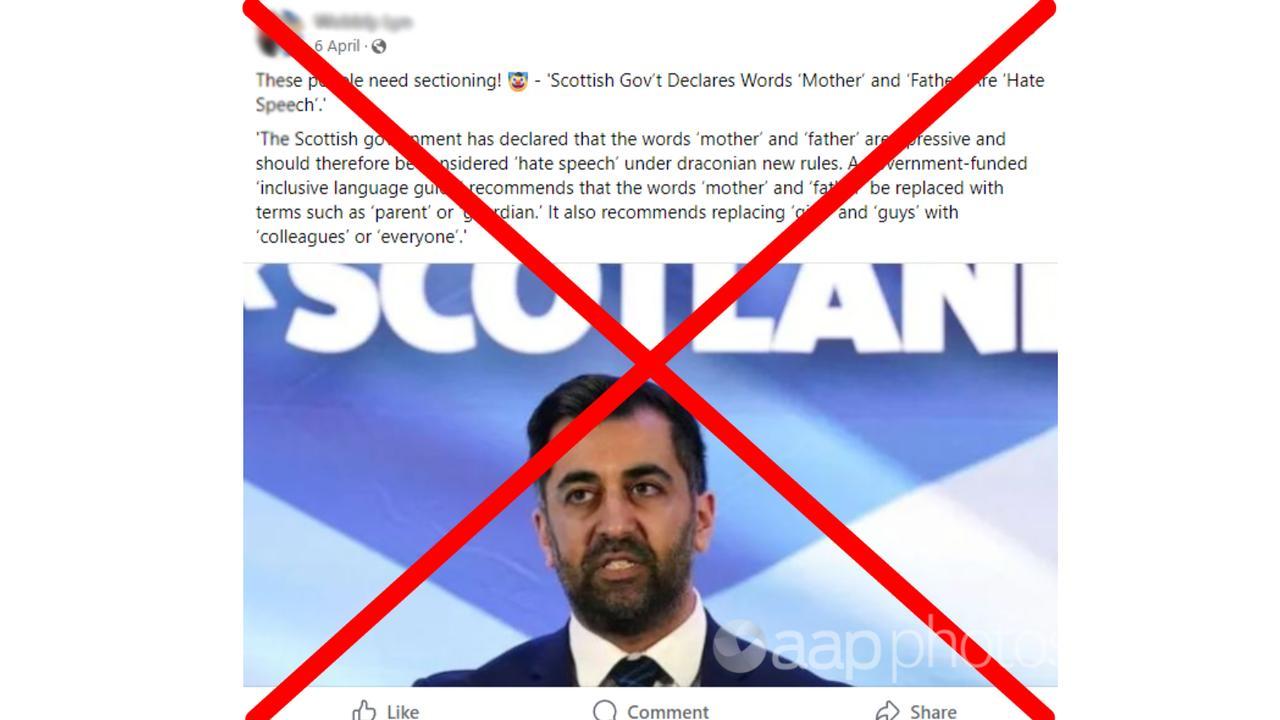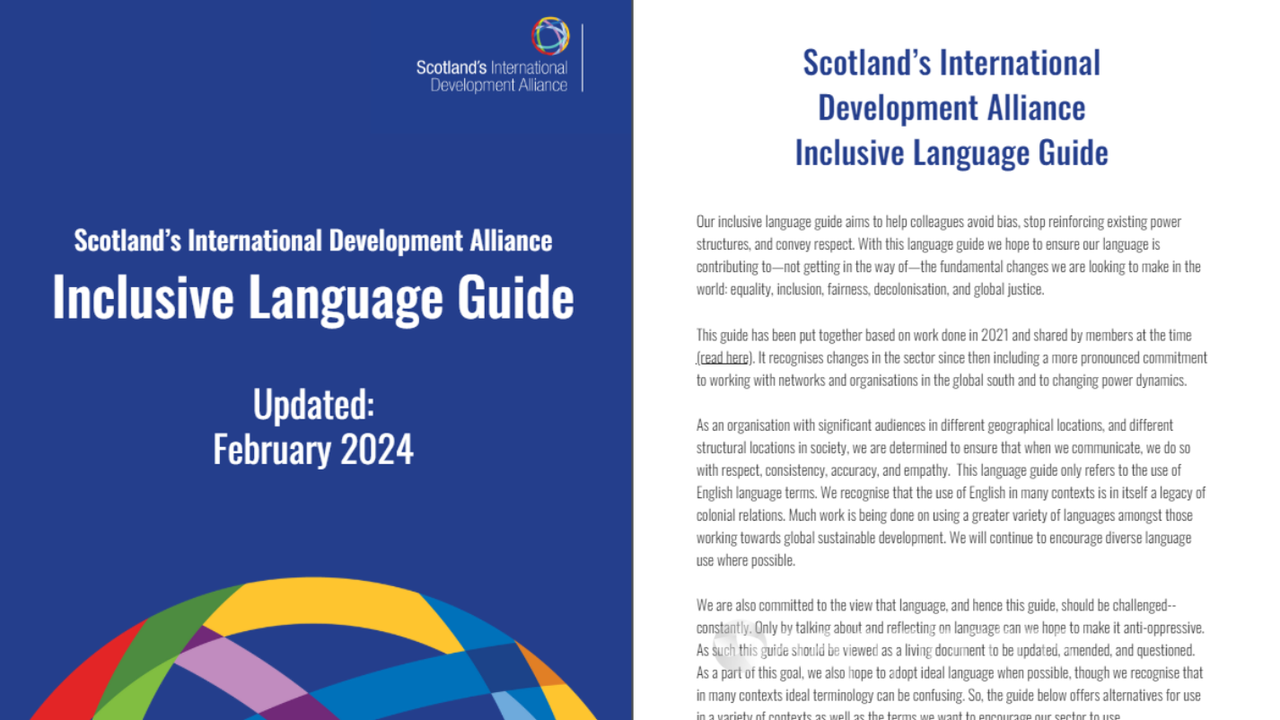The Scottish government has declared the terms ‘mother’ and ‘father’ are hate speech under draconian new rules, social media users have claimed.
The claim is false. The government has made no such declaration. The claim is based on recommendations featured in an inclusive language guide produced by a non-governmental body in Scotland.
The guide does not declare ‘mother’ and ‘father’ as hate speech.
The claim has been pushed by US-based misinformation website The People’s Voice.
“These people need sectioning!” one Facebook post says of the Scottish government before referencing an article on the fake news website.

The piece, published in April and headlined “Scottish Gov’t Declares Words ‘Mother’ and ‘Father’ Are ‘Hate Speech'”, features the same photo of former Scottish first minister Humza Yousaf (who resigned in early May) as appears in many of the social media posts.
The article begins: “The Scottish government has declared that the words ‘mother’ and ‘father’ are oppressive and should therefore be considered ‘hate speech’ under draconian new rules.”
The article links to a document called “Inclusive Language Guide“, updated in February by Scotland’s International Development Alliance (IDA).
The alliance isn’t a government body, though it has received a grant from the Scottish government.
In the guide, mother and father are listed under “Problematic Phrases”, with parent or guardian the suggested alternatives.
The advice given is: “Be mindful of using unnecessarily gendered phrases.”
However, there is no suggestion the terms are – or should be – classified as hate speech.
The People’s Voice article was published around the same time as Scotland’s new hate crime law was gaining global attention.
New offences were introduced to the Hate Crime and Public Order (Scotland) Act of “stirring up hatred”, which “criminalises threatening or abusive behaviour and the communication of threatening or abusive material which is intended to stir up hatred against a group of people” based on disability, race, religion, sexual orientation and transgender identity.
The legislation came to wider attention when Harry Potter author JK Rowling challenged police to arrest her over comments she made following the introduction of the new laws.
Many social media users are mixing and confusing the legislation with The People’s Voice claim.

Legal experts told AAP FactCheck the terms would not be classified as “hate speech” under the new legislation.
Professor Adam Tomkins, a law expert at the University of Glasgow, describes the claim as “nonsense”.
To be hate speech under the law, he says, words would have to be such that a reasonable person would find them threatening or abusive and which the speaker intended to stir up hatred.
Dr Nick McKerrell, a senior lecturer in law at Glasgow Caledonian University, agreed.
He also pointed out a specific defence in the Hate Crime Act which says that the European Convention of Human Rights, under the right of free expression, allows someone to be “offensive, insulting or disturbing”.
“This needs to be taken into account before any criminal charges,” Dr McKerrell added.
The Verdict
The claim that the Scottish government has declared the words ‘mother’ and ‘father’ are hate speech is false.
The inclusive language guide, which the claim is based on, was produced by a non-governmental body. Even so, it does not state the terms are – or should be – hate speech.
The guide is separate from new hate crime legislation in Scotland. Regardless, experts told AAP FactCheck the claims would not be classified as hate speech in isolation under the legislation.
False – The claim is inaccurate.
AAP FactCheck is an accredited member of the International Fact-Checking Network. To keep up with our latest fact checks, follow us on Facebook, Twitter and Instagram.
All information, text and images included on the AAP Websites is for personal use only and may not be re-written, copied, re-sold or re-distributed, framed, linked, shared onto social media or otherwise used whether for compensation of any kind or not, unless you have the prior written permission of AAP. For more information, please refer to our standard terms and conditions.


















